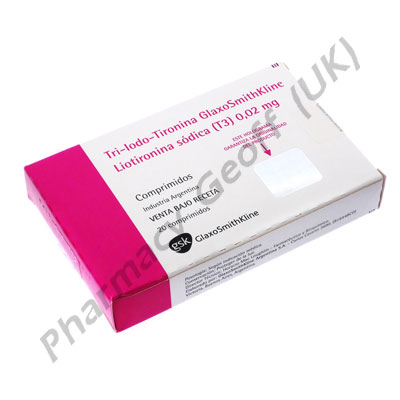
Our price: £9.82
Liothyronine Sodium
Why is Liothyronine Sodium Used?
The body produces many types of hormones but Liothyronine Sodium is one that is man made as well. It is used to regulate the function of the thyroid glands so that a person has high levels of energy and to help with their metabolic rate. When the thyroid isnít producing enough of it then havoc can take place in the body. That is when the man made version of the hormone will be given to help regulate things and get them back into balance.
Liothyronine Sodium Dosage and Usage Instructions
The dose of this medication depends on the type of thyroid problem that a person has and the severity of them. Typically a low dose of it will be prescribed to be taken on a daily basis. That dose may need to be increased over time to find the right balance of assistance that it can offer to the thyroid functionality.
To ensure that the use of Liothyronine Sodium is helping to regulate the thyroid your doctor will want to test your blood at regular intervals. It is very important to keep all appointments. It is very important to continue taking this medication even when you start to feel better. Many patients will need to take this or other medications to regulate thyroid problems for the remainder of their life.
Liothyronine Sodium Precautions
Sometimes Liothyronine Sodium is misused by consumers as a means of trying to lose weight. However, it isnít recommended for any other use other than various types of thyroid problems.
Not everyone is a good candidate for this type of product. Anyone with the following conditions should refrain from using it:
- Women who are pregnant
- Women who are nursing
- Heart disease
- Chest pain problems
- Coronary artery disease
- Diabetes
- Adrenal gland concerns
Possible Side Effects of Liothyronine Sodium
Children may experience hair loss in large amounts when they first start taking Liothyronine Sodium. This is a common side effect that should go away as the body gets used to the medication.
There are some more serious side effects that should be immediately reported to the doctor. They include:
- Difficulty breathing
- Hives
- Swelling of the face
- Changes in heart rate


 Categories
Categories